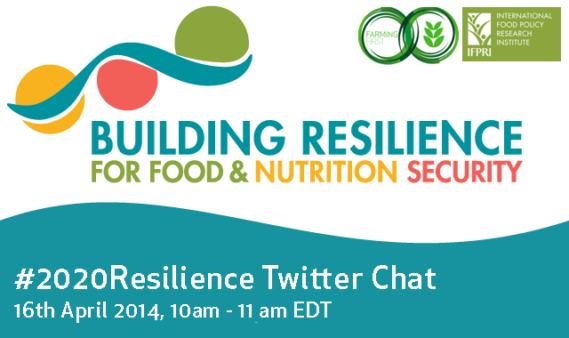Tag: Building Resilience for Food and Nutrition Security

Jon Kurtz: Tough Love – Making Resilience Meaningful
Global: Our guest author, Jon Kurtz, Director for Research and Learning for Mercy Corps, continues our series of blog articles on resilience published in partnership with the International Food Policy Research Institute (IFPRI) ahead of the conference “Building Resilience for Food and Nutrition Security” 15-17 May 2014. Resilience has an Achilles’ heel: By being all things, it risks being nothing […]
Read More#2020Resilience Twitter Chat Summary
Global: To warm up for the global conference “Building Resilience for Food and Nutrition Security” taking place in Ethiopia in a few weeks time, Farming First and the International Food Policy Research Institute (IFPRI) held a lively and informative Twitter Chat on the topic of “resilience”. Our expert panelists from IFPRI and Farming First supporter organisations […]
Read More

